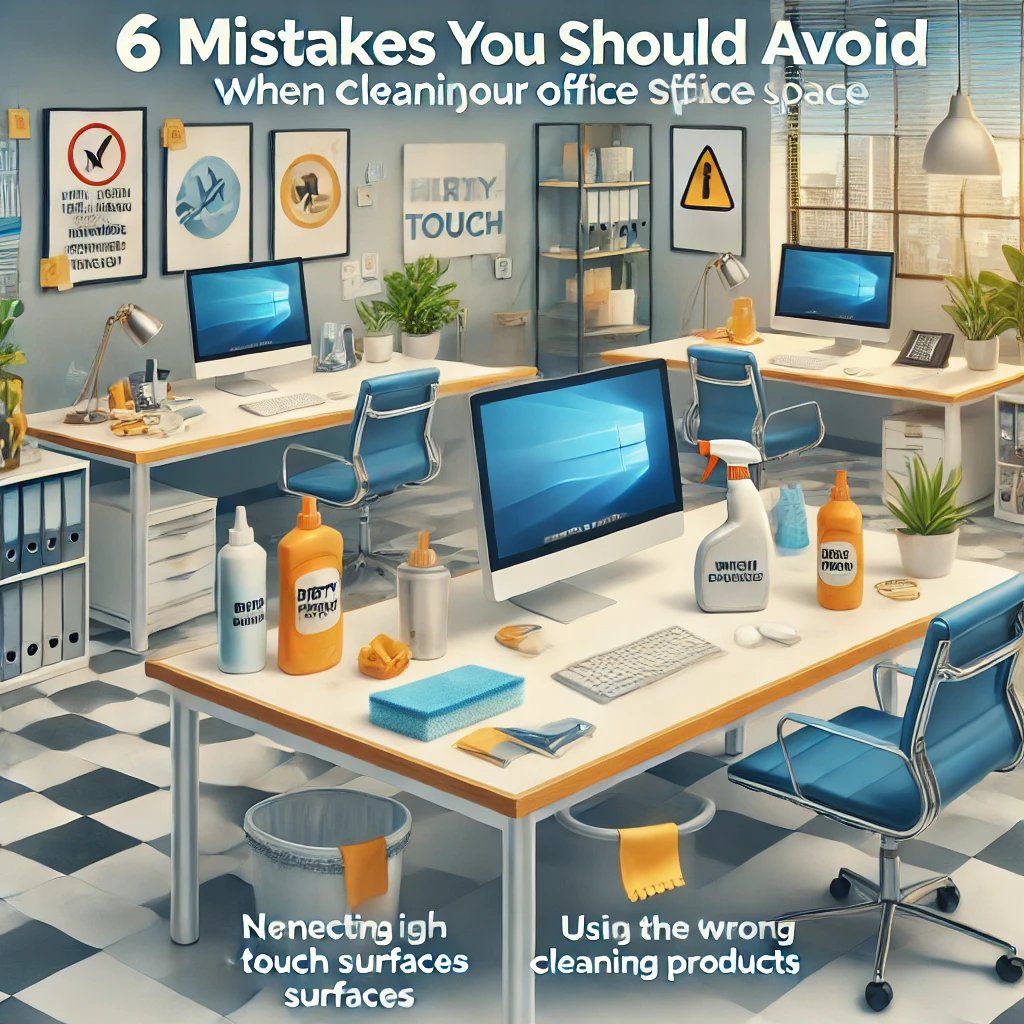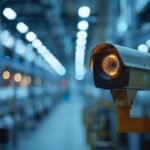6 Mistakes You Should Avoid When Cleaning Your Office Space A clean and organized office space can significantly boost productivity, reduce stress, and create a more positive work environment. However, many people make common mistakes when cleaning their offices that can hinder these benefits. In this post, we’ll discuss six common mistakes you should avoid to ensure your office is clean, efficient, and conducive to a productive work environment.
6 Mistakes You Should Avoid When Cleaning Your Office Space
Mistake 1: Overlooking Hidden Areas
One of the most common mistakes people make when cleaning their offices is overlooking hidden areas. These areas can accumulate dust, dirt, and grime over time, leading to health problems and a less pleasant work environment. Be sure to clean behind furniture, under desks, and in drawers and cabinets. Pay particular attention to corners and crevices, as these are often overlooked.
Mistake 2: Using Harsh Chemicals
While it’s important to clean your office space, using harsh chemicals can be harmful to your health and the environment. Opt for natural cleaning products or homemade solutions that are effective without being toxic. For example, you can use vinegar and water to clean surfaces, baking soda to scrub away tough stains, and lemon juice to disinfect and deodorize.
Mistake 3: Neglecting Electronics
Electronics can accumulate dust and dirt, which can cause them to malfunction. Regularly clean your computer keyboard, mouse, and monitor to ensure they’re working properly. Use compressed air to remove dust from keyboards and other electronic devices.
Mistake 4: Not Decluttering Regularly
Clutter can make your office space feel chaotic and disorganized. Regularly declutter your office by removing items you don’t need or use. Donate items that are still in good condition or throw away anything that is broken or damaged. A good rule of thumb is to ask yourself if you’ve used an item in the past year. If not, it’s probably time to get rid of it.
Mistake 5: Forgetting About Air Quality
Poor air quality can lead to headaches, fatigue, and other health problems. Ensure your office space has good ventilation and consider using air purifiers to improve the air quality. Open windows and doors regularly to allow fresh air to circulate. If you have plants in your office, make sure they are healthy and not contributing to indoor air pollution.
Mistake 6: Not Cleaning Regularly
Consistent cleaning is essential for maintaining a clean and organized office space. Make a schedule and stick to it. A quick daily cleanup can help prevent clutter and keep your office looking its best. You can also do a more thorough cleaning once a week or once a month, depending on the size of your office and your cleaning needs.
Conclusion
By avoiding these common mistakes , you can create a clean, organized, and healthy office environment. Remember to pay attention to hidden areas, use natural cleaning products, clean your electronics regularly, declutter frequently, prioritize air quality, and maintain a consistent cleaning schedule. A clean office space can significantly improve your productivity, reduce stress, and create a more positive work environment.
When discussing 6 Mistakes You Should Avoid When Cleaning Your Office Space, it’s intriguing to consider how the The Future of Advanced Surveillance and Tracking A Double-Edged Sword intersects with workplace hygiene and security. Advanced surveillance and tracking technologies are increasingly being implemented in office environments to monitor cleanliness standards, ensure employee safety, and improve overall workplace efficiency. However, improper cleaning techniques or oversight can undermine these technologies’ effectiveness, such as leaving cameras or biometric devices dirty or improperly maintained.
By interlinking these topics, you can explore how advanced tracking tools might highlight areas that need more frequent cleaning or detect hygiene lapses in high-traffic zones. Conversely, the misuse or misunderstanding of these technologies can lead to privacy concerns or operational inefficiencies. Properly balancing cleaning protocols with the integration of surveillance and tracking ensures a workplace that is not only hygienic but also secure and optimized for productivity.
This connection allows readers to think critically about how modern technologies influence everyday office practices, from maintaining cleanliness to ensuring ethical use of surveillance tools. Together, these insights demonstrate how cleaning mistakes and technology management play essential roles in creating a safe, functional workspace.



